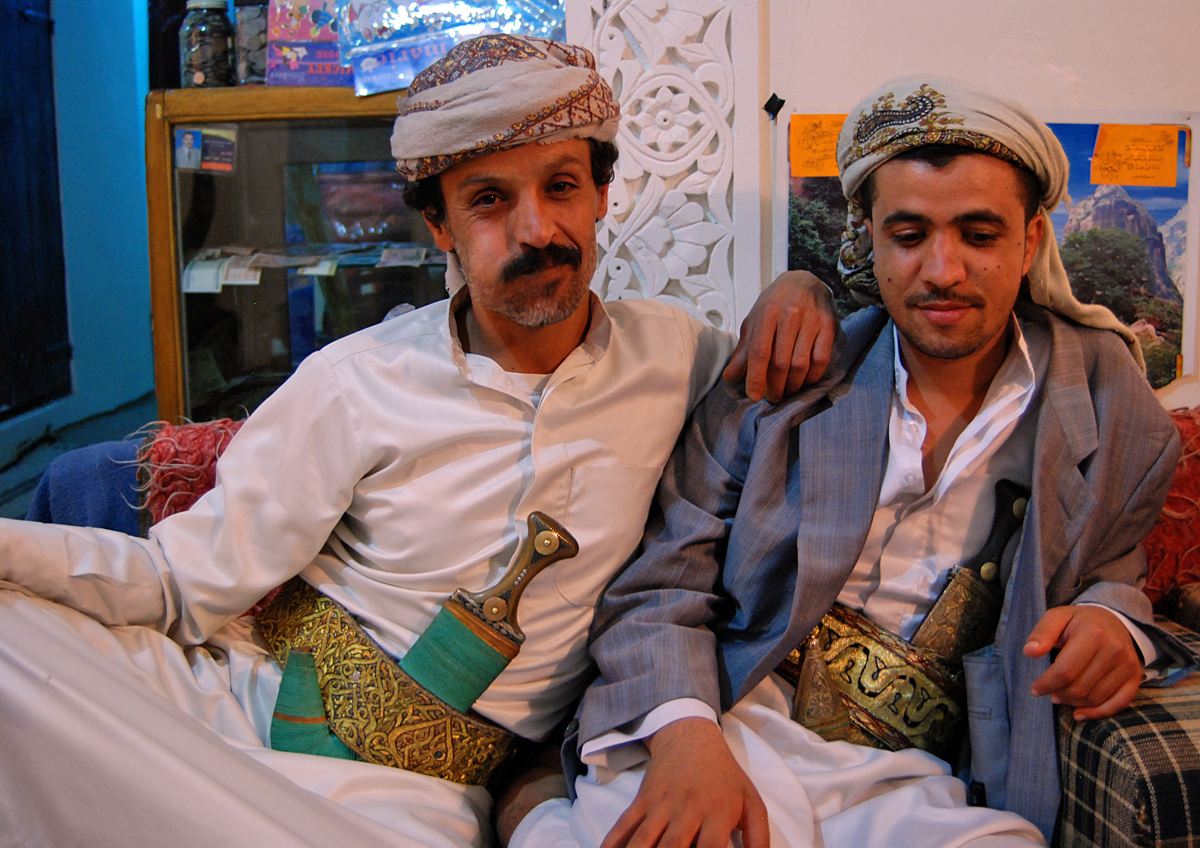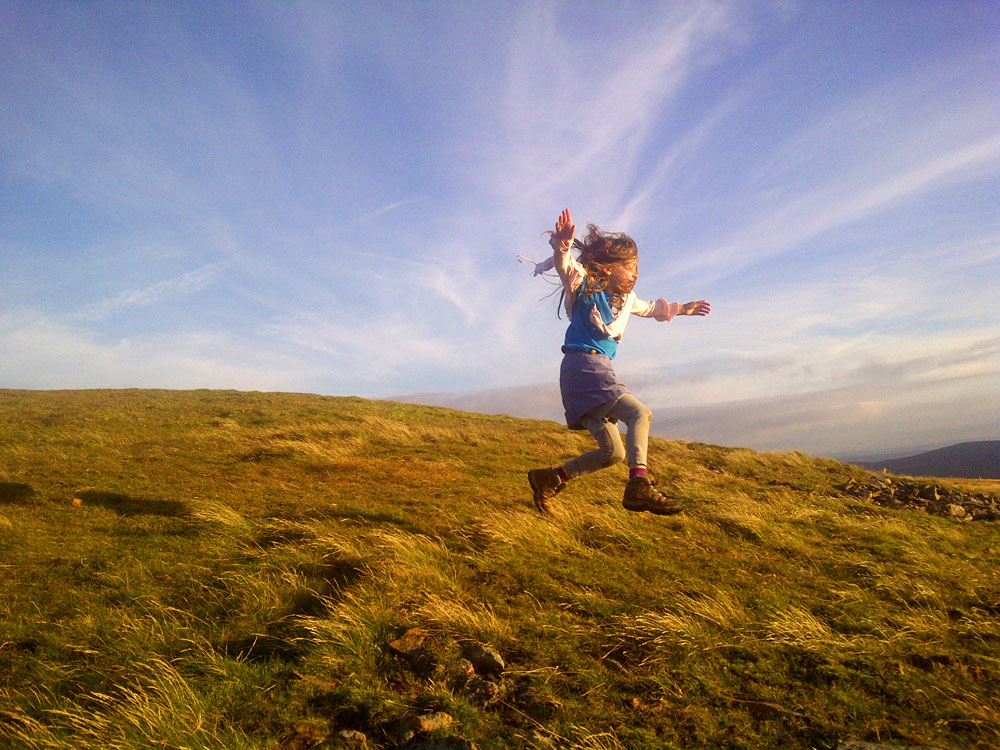”My father and his father and so on, they all travelled to Mecca by camel” , the old man explained whilst touching the top of his jambiyya , “It took my father four months to get there and the same amount of time back. In those days you only made the pilgrimage once. It was too difficult and to expensive.”

“Isn’t it still expensive to do a pilgrimage to Mecca? My teacher told me yesterday it is still very expensive and for most people, if it is possible at all, that once in a life time is an achievement, a dream.” I said, remembering Rashad telling me that he hoped to do a pilgrimage, but that it would take him many years to save the money needed, “He said it would cost him at least half a million rials (approximately 2500 dollars) to do a proper pilgrimage, since he had to go through a travel agent here in Sana’a specialising in pilgrimage tours to Mecca. About 25 days including hotels, transport, air tickets, a visit to the prophet’s grave in Medina and so on. And he said that the Saudis only allowed a certain amount of pilgrims per country a year.”
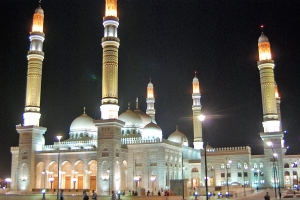
“The Saudis….” , the old hajji said with a grim face, “…charge you for everything including breathing.”
A very good friend of mine, one of few Muslim explorers on earth, a true Ibn Batutta of today, said that he flew from Afghanistan to Mecca to do his first pilgrimage and was treated like shit until he showed his American passport. He wasn’t too fond of the Saudis in Mecca either. I have to say, they don’t seem to have the best reputation in the world, neither among ex pats or other gulf Arabs. Than again I have heard a lot of opposing views. That the Saudis are amongst the friendliest and best people on earth. The idea seems to be to avoid Jeddah, Riyadh and Mecca/Medina. The reason I bring Saudi Arabia up is that it is a country everyone continuously talks about in these parts of the world. In Yemen every day. The Saudis are in many ways very influential and powerful players in the global economy of not only the Gulf, but in the rest of the world as well. I look forward to travelling through Saudi-Arabia a lot!

“So you are contemplating to travel by camel?” the old man said more as a statement than a question and than added: “It is the best way to travel! Just treat them well and they will be your best friends forever!”
It was Mohammed, Hussein’s employee and best friend, who had set me up meeting this old man, who’s first name was Abdullah and came from the same village as Mohammed. They had the same second name, Al Mawari. Many people’s second names in the Arab World also tell a visitor the geographical background of a person. And ever since I was given a great gift from my great best friend Pamela, see last report, a zannah (ankle long white robe), a silver belt with an expensive jambiyyah with a Bedu background and a turban or head cloth, sharh, with a colour and pattern which makes locals sometimes call me Palestinian, I have honorary been given the name Ahmed Al-Hamdani. Basically due to the way Hussein made up my turban, just like a Bedu from the Hamdani region. Even Abdullah called me a Hamdani, even though Mohammed had to translate. I have to say I still somewhat surprised how honoured and happy the locals are when you are dressed like them. This I have never seen anywhere else, well, maybe Oman.

“So you stopped using and working with camels as long back as 30 years ago, what do you miss the most regarding these fantastic animals and do you have any advice to me to bring on my journey?” I asked him, because I had earlier asked Hussein if he could find a Yemeni who had travelled to Mecca by camel and could tell me which route they had taken, since I would like to stick to the traditional pilgrimage route from Sana’a to Mecca.
“I used to travel from Sana’a to Al Hudaydah (link to Yemeni map) on the west coast, and back, bringing food for people and animal, it used to take eight days and we travelled 16 hours per day”, he recounted with passion, “And what do I miss? I miss the freedom and the evenings in front of the fire. And I miss the camels. If you treat them with love, you will always have a loyal friend.”
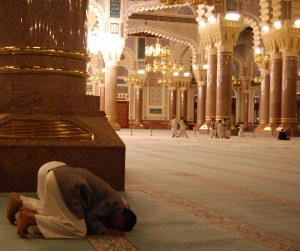
“Which route did your dad take to Mecca?” I asked again, because our conversation was on and off disturbed by other locals in the room teasing and laughing at the old man, just because he used to work camels and right now was a quite hard line Muslim belonging to the Shia arm of Islam. All others Yemenis in the room were Sunni. The war in the north, between the government and the Al Houthi could in some ways be called a religious one. A war between Sunni (government) and Shia (al Houthi).
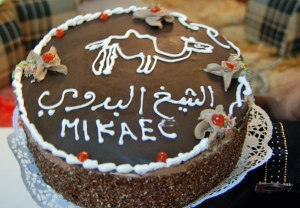
“Quiet!” he hissed at his teasers, who laughed back and teased him a bit more, but he continued: “Well, the pilgrims and hajjis to be, always set out from Saada and from there travelled to Mecca via Baqim, Zahran, Haraja, Khamis Mushayt, Abha and down to the Saudi coast and from there on to Jeddah and Mecca.”
Amazingly enough exactly the route I had planned just by looking at the map geographically 3 months back and searching for the existence of valleys, plains, paths and roads. However, my Expedition is still far off in time, in shallah, if all goes well, we will set off in January next year, but, this fact apart, yesterday I was also given an especially made cake by Pamela, Hussein and Mohammed, thick and tasty and its chocolate decorated with a white camel and the words:
“Mikael – the sheikh of the Bedu”.
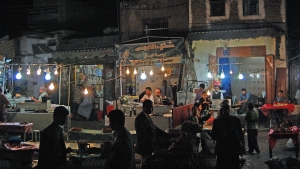
People here in Yemen, my friends, are the best of the best. Warm, generous, funny, smart and they all love life. I still don’t know what we were celebrating, but it filled me with great joy! On top of that I was given a full Sanaani outfit including the most macho of all male symbols in Sanaa, a jambiyya, and together with Pamela, Hussein and Mohammed we took a taxi –this was another “birthday” surprise organised by Pamela for me- and we ended up at the spectacular Presidents Mosque. Its main hall is so big so that it can seat 20 000 devotees facing Mecca in prayer! We weren’t the only foreigners there, me, Ahmed Al Hamdani, and Pam dressed as a Sanaani woman, then named Pamela Al-Sanaani to make it easier to get in during prayer. There were many Indonesians and Malaysians amongst the devotees. Security was hard, but Hussein got us through everywhere with his kindness, humour, baton and peculiar ideas. It beats the Sultan Qaboos Mosque in Muscat. It is grander.
“The cost to build this mosque equalled ten hospitals”, Mohammed commented with his down-to-earth wisdom:” I think most people wanted hospitals, but the president wanted to be remembered.”
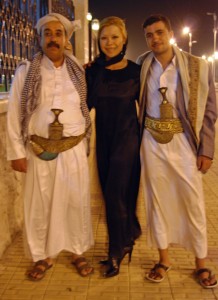
I have also realised that most local people don’t really appreciate the war against the Houthis, which many see as their brethren and fellow Moslems. The war planes are still leaving Sana’a in great numbers. It is still a very unnerving feeling. Thank God for friends like Mohammed, Hussein and Pamela!
